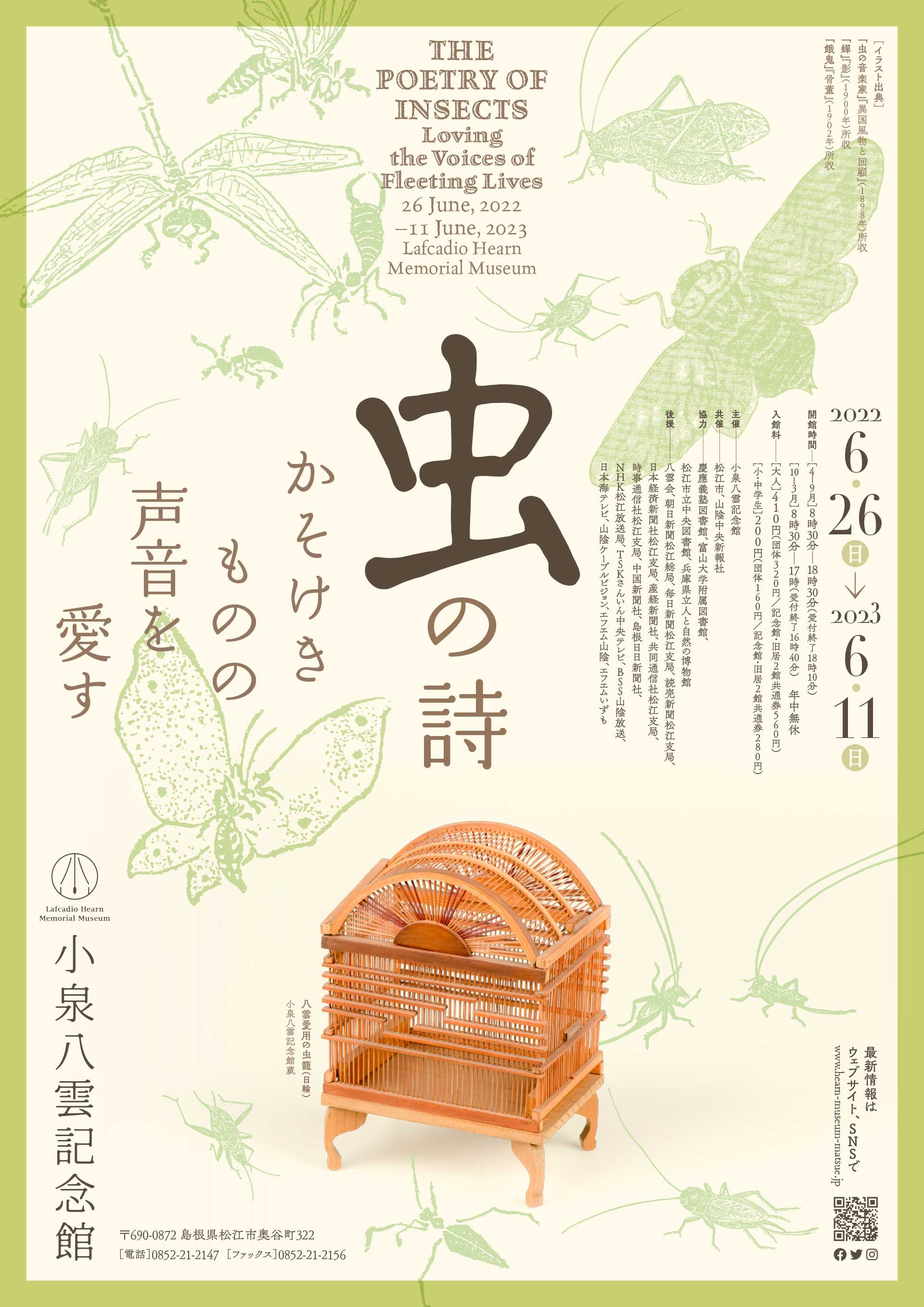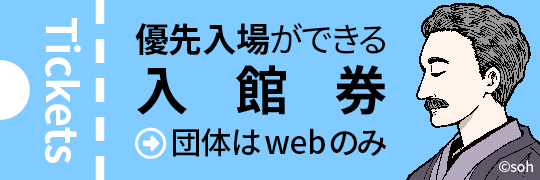Upcoming Exhibition: The Poetry of Insects—Loving the Voices of Fleeting Lives starts on 26 June!
The Poetry of Insects—Loving the Voices of Fleeting Lives
Sunday June 26, 2022–Sunday June 11, 2023
Exhibition Room 3
Lafcadio Hearn, the writer, loved insects, and was an avid reader of Fabre’s books about insects. He kept a pine cricket, bell cricket and grass skylark in beautiful bamboo insect cages and listened to their song. He also collected many old Japanese poems. He wrote of the Japanese feelings and views on nature, and their attachment to insects which were evinced in these poems. In his essays, he touched upon the theory of evolution, and Buddhist and philosophical thought, and introduced the Japanese view of insects to readers in the West.
If we look at the themes in Hearn’s works, we can see many insects and small creatures, such as dragonflies, cicadas, flies, fireflies, frogs, silkworms, grass skylarks, butterflies, mosquitoes, and ants. However, his works were not entomological studies. He wrote essays on cultural observations, such the types of insects and their cries, waka and haiku poetry, the custom of listening to insects and the sale of insects. Hearn showed an interest in the folk beliefs and culture of the common people regarding insects. He maintained an empathetic stance in sharing the lives of the ordinary people.
The Japanese attitude towards insects, expressed in the saying “even a worm will turn”, the way in which they consider the cries of insects to be “beautiful music” and their rich sensibility have similarities with that of the ancient Greeks in terms of having a fondness for insects.
Emphasising works which feature insects and small creatures, this special exhibition displays Hearn’s beloved insect cages, original manuscripts and illustrations from his works. We will shine a light on the Japanese attitude towards nature, which Hearn found to be the soundest and happiest, the Japanese acceptance of nature “as-is”, and the beauty they find in ephemeral creatures such as insects and frogs. We hope this brings a ray of light to us who are living in the difficult contemporary era.

